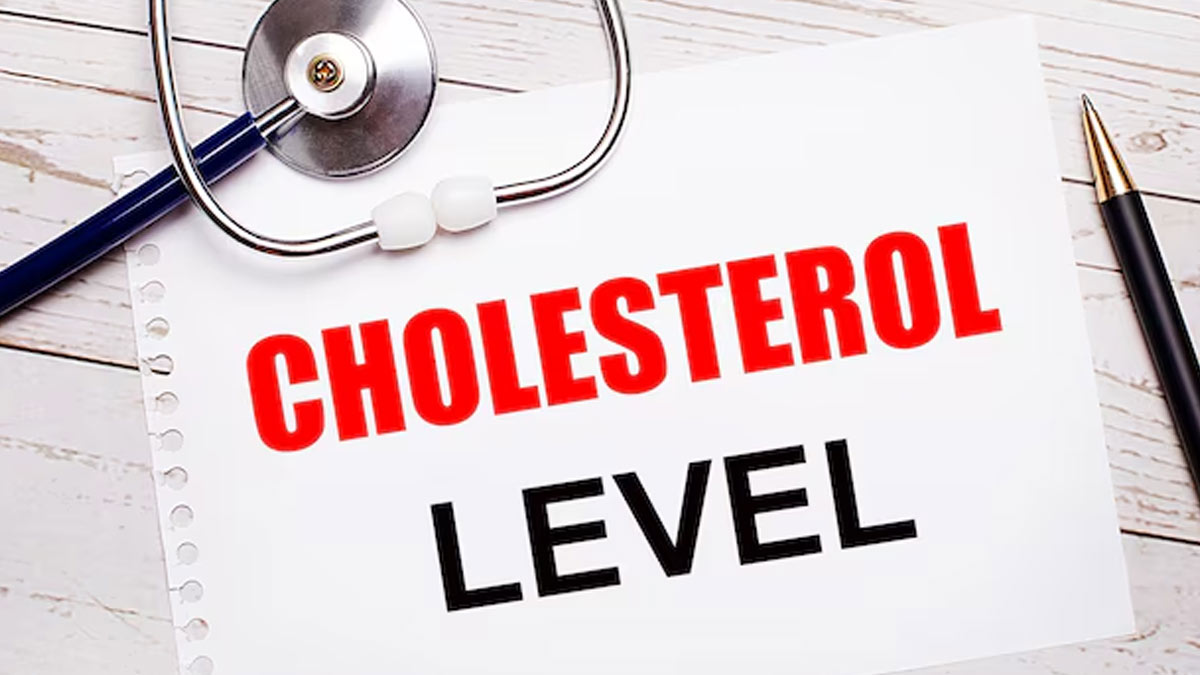
Getting routine health check results can often feel overwhelming, especially when it comes to understanding cholesterol levels. Many people find themselves puzzled by terms like triglycerides, LDL, and HDL, and how these numbers relate to heart health. With medical reports indicating elevated triglycerides or 'bad' cholesterol levels, it’s natural to wonder which one poses a greater risk. To help clarify this confusion, we spoke to Dr M Sudhakar Rao, Consultant – Cardiology, Manipal Hospital, Sarjapur Road, who explained what these levels mean and why it’s important to manage both high triglycerides and LDL cholesterol for a healthier heart.
Table of Content:-
Types Of Cholesterol

- Total Cholesterol: This is a measure of all cholesterol present in your blood.
- Triglycerides: These are fats in the blood that are often a result of consuming excess calories, primarily from carbohydrates.
- Low-Density Lipoprotein (LDL): Commonly referred to as 'bad cholesterol,' high levels of LDL are linked to an increased risk of cardiovascular diseases.
- High-Density Lipoprotein (HDL): Known as 'good cholesterol,' HDL helps remove cholesterol from the bloodstream, thereby protecting heart health.
- Apolipoprotein B and Lipoprotein A: These newer markers are associated with cardiovascular inflammation and risk.
Understanding Triglycerides

When you consume excess calories, particularly from carbohydrates, your body converts these calories into triglycerides, which are then stored as fat cells to be used as energy. Elevated triglyceride levels can arise from various factors, including:
- Diet: High intake of sugars and refined carbohydrates
- Medications: Certain drugs can raise triglyceride levels
- Medical Conditions: Diabetes, hypothyroidism, and metabolic disorders can contribute
- Genetic Predispositions: Family history may play a role
Also Read: High Cholesterol And Weight Gain: Expert Explains How Cholesterol Levels Impact Weight Management
Triglyceride Levels
- Triglyceride levels are categorised as follows:
- Normal: Less than 150 mg/dL
- Borderline: 150 to 199 mg/dL
- High: 200 to 499 mg/dL
- Very High: 500 mg/dL and above
"Although triglycerides are a type of fat, the direct link between cardiovascular diseases and high triglycerides is less pronounced compared to LDL cholesterol. However, elevated triglycerides, particularly above 300 mg/dL, can still pose significant risks. As per the studies, only one-quarter of individuals with high triglycerides may develop cardiovascular diseases," said Dr Rao.
According to a 2013 study, elevated triglyceride levels in the bloodstream are associated with atherosclerosis and an increased risk of heart disease and stroke. This risk is partially explained by a significant inverse relationship between triglyceride levels and (HDL cholesterol levels.
The Role of LDL Cholesterol

"LDL cholesterol is often highlighted as a more critical factor in cardiovascular disease risk. High levels of LDL cholesterol can lead to the buildup of plaques in the arteries, narrowing them and increasing the risk of heart attacks and strokes. This condition, known as atherosclerosis, can be detrimental to overall heart health," said Dr Rao.
Management Strategies for High Triglycerides
Addressing elevated triglyceride levels primarily revolves around lifestyle changes rather than medication. Here are recommended strategies for managing high triglycerides:

- Regular Exercise: Engaging in physical activity can help lower triglycerides and improve heart health.
- Dietary Adjustments: Focus on reducing sugar and refined carbohydrate intake. Opt for healthier fats, such as those found in avocados, nuts, and olive oil, while controlling portion sizes.
- Weight Management: Achieving and maintaining a healthy weight can significantly impact triglyceride levels.
- Alcohol Limitation: Reducing alcohol intake can also help lower triglyceride levels.
"In cases where lifestyle modifications are insufficient, medical management may be necessary. Options include medications like fenofibrate and omega-3 fatty acids, and occasionally statins if lifestyle changes do not effectively lower triglyceride levels," added Dr Rao.
Bottomline
Dr Rao concluded, “While both high triglycerides and high LDL cholesterol pose risks to cardiovascular health, the focus should often be on LDL cholesterol as a more significant contributor to heart disease. However, this does not diminish the importance of managing triglyceride levels, especially when markedly elevated. A comprehensive approach that includes healthy lifestyle choices can help mitigate risks associated with triglycerides and LDL cholesterol, promoting overall heart health.”
[Disclaimer: This article contains information provided by an expert and is for informational purposes only. Hence, we advise you to consult your own professional if you are dealing with any health issues to avoid complications.]
Also watch this video
How we keep this article up to date:
We work with experts and keep a close eye on the latest in health and wellness. Whenever there is a new research or helpful information, we update our articles with accurate and useful advice.
Current Version